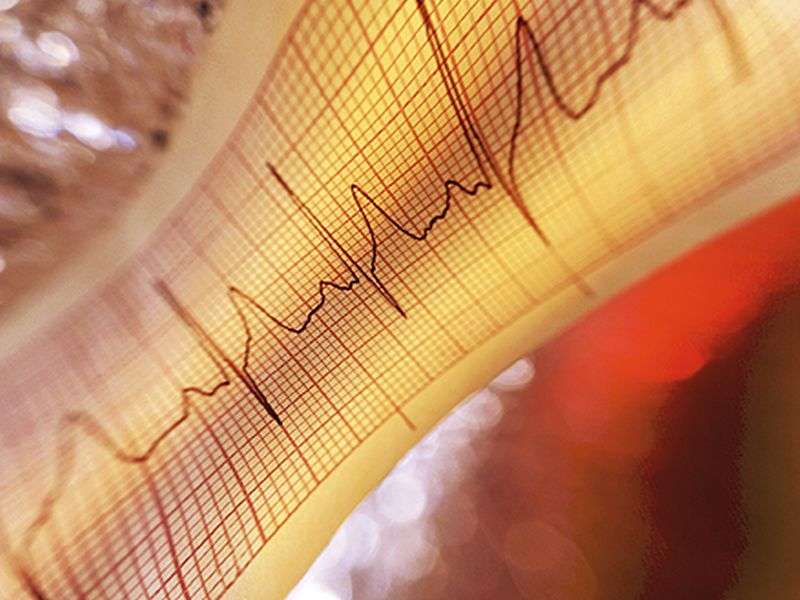(HealthDay)—Fragmented QRS complex may predict risk of exercise-related sudden cardiac death, according to a study published online Sept. 20 in the Journal of Cardiovascular Electrophysiology.
Tomi Toukola, M.D., from the University of Oulu in Finland, and colleagues studied 3,989 consecutive sudden cardiac deaths in northern Finland (1998 through 2012). Of the identified deaths, 647 subjects had a previously recorded electrocardiography acquired from hospital archives.
The researchers found that in 276 of these cases, the death was witnessed, and 14 percent of those cases occurred during physical activity. In the exercise group, fragmented QRS complex in at least two consecutive leads within anterior leads (V1-V3) was more common compared with the rest group (43 percent versus 22 percent; P = 0.005). Similarly, pathologic Q wave in anterior leads was also more common in the exercise group (23 percent versus 11 percent; P = 0.044). Lastly, compared with the rest group, median QRS duration was prolonged in the exercise group (100 ms versus 94 ms; P = 0.047).
"Fragmented QRS complex in the anterior leads is associated with an increased risk of sudden cardiac death during physical exercise," conclude the authors.
More information: Abstract/Full Text (subscription or payment may be required)
Copyright © 2017 HealthDay. All rights reserved.






















